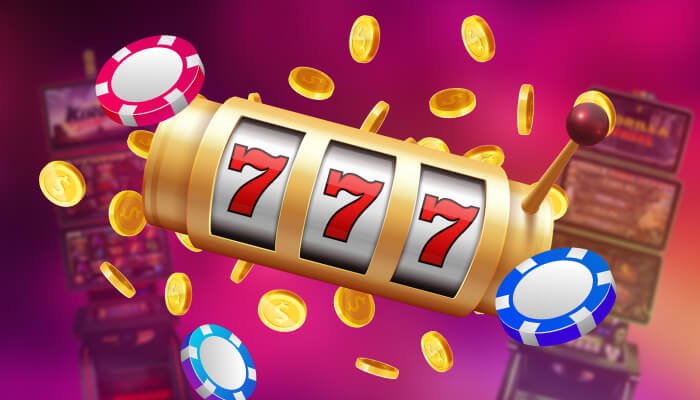Chargebacks are a critical part of modern payment systems and can have significant consequences for both players and operators in the iGaming space. For information on licensed platforms and safe play, consider checking reputable sites such as facts about online casino chargebacks uk Nationalbet which demonstrate industry standards and responsible gaming practices.
This article collects important facts about online casino chargebacks and explains the mechanics, typical triggers, dispute strategies, and preventative measures. Whether you are a player considering a chargeback or an operator aiming to reduce fraud and disputes, understanding the chargeback lifecycle is essential.
What is a chargeback?
A chargeback is a forced reversal of a card transaction initiated by a cardholder through their bank or card issuer. Originally designed to protect consumers from fraud or unauthorized transactions, chargebacks are processed through card networks (Visa, Mastercard, etc.) and follow established rules and timeframes. For online casinos, chargebacks can involve deposits, subscription fees, bonus-related disputes, or winnings that players claim were processed in error or without their consent.
Common reasons players file chargebacks
There are several typical reasons why a player might request a chargeback against an online casino:
- Unauthorized or fraudulent transactions — a cardholder claims their card was used without permission.
- Non-receipt of service — the player says they did not receive the gaming credits or the service advertised.
- Technical errors — duplicate charges, incorrect amounts, or failed refunds.
- Disputes over bonus terms or wagering requirements — players may feel terms were misrepresented.
- Responsible gaming issues — players who claim they were allowed to gamble while self-excluded or after requesting account closure.
- Chargeback fraud (friendly fraud) — a customer knowingly requests a chargeback after receiving services because they prefer a refund via their bank rather than pursuing a resolution with the merchant.
How the chargeback process works for casinos
When a player initiates a chargeback, the card issuer provisionally credits the player’s account and notifies the acquiring bank that processes the casino’s merchant account. The acquirer then forwards the dispute to the operator. The operator can either accept the chargeback or contest it by submitting evidence (a representment). Evidence may include transaction logs, IP addresses, KYC documentation, chat transcripts, timestamps, and proof of communicated terms.
If the operator successfully rebuts the dispute, the chargeback can be reversed. If not, the funds remain with the cardholder and the casino may incur additional fines or penalties from the acquiring bank and card network.
Typical timelines and deadlines
Chargebacks are governed by time limits. Card networks set deadlines for initiating disputes (often 120 days from transaction or from when the service should have been delivered) and for submitting representment evidence. These windows vary by network and by reason code; operators must act quickly to gather and submit high-quality evidence. Delays or incomplete documentation usually result in lost disputes.
Consequences for online casinos
Chargebacks impose direct and indirect costs on operators:
- Immediate financial loss of the disputed amount and reversal of any associated fees.
- Chargeback fees charged by the acquirer for handling disputes.
- Reputational damage if chargeback volumes indicate poor customer service or lax compliance.
- Risk of higher merchant fees or termination of payment processing agreements if chargeback ratios exceed thresholds set by payment processors.
- Operational overhead — time and resources required to investigate and respond to disputes.
Best evidence to dispute a chargeback
Strong, well-organized evidence increases the likelihood of a successful representment. Key items include:
- Complete transaction history and timestamps.
- KYC documents proving the cardholder’s identity and address at the time of transaction.
- IP logs and geolocation data showing where the player accessed the account.
- Session logs and game-play records proving the services were delivered and used.
- Communication records — emails, support tickets, and chat transcripts demonstrating that complaints were handled and policies were communicated.
- Terms and conditions, bonus rules, and any workflow that shows consent to terms.
Prevention and risk mitigation for operators
Operators can take proactive steps to reduce chargeback risk:
- Robust KYC and anti-fraud checks at account creation and before large transactions.
- Clear communication of terms, wagering requirements, and withdrawal procedures.
- Prompt and well-documented customer support to resolve disputes before they escalate to chargebacks.
- Use of friendly fraud prevention tools and machine-learning systems to flag suspicious activity.
- Maintain detailed logs and evidence retention policies to enable rapid representment.
- Offer merchant-initiated refunds or partial settlements where appropriate to avoid chargebacks.
Advice for players
Players should follow best practices before filing a chargeback to avoid misuse and potential legal consequences:
- Contact casino support first and exhaust internal dispute mechanisms; many issues can be resolved without a chargeback.
- Retain documentation — receipts, screenshots, emails — that clarify the transaction and support your claim.
- Understand the casino’s terms and the relevant payment provider timelines for disputes.
- Avoid friendly fraud. Misusing chargebacks can lead to permanent bans from casinos and legal or financial repercussions.
- If you suspect fraud, report it promptly to your bank and to the casino, and consider filing a police report for serious unauthorized transactions.
Regulatory and legal landscape
Chargebacks intersect with consumer protection laws and gaming regulations, which vary by jurisdiction. Regulators expect licensed operators to maintain fair dispute-handling procedures, strong anti-money-laundering controls, and responsible gaming safeguards. Card networks also enforce chargeback monitoring programs and meaningful thresholds — persistent non-compliance can lead to increased scrutiny or loss of access to key payment rails.
Emerging trends
Several trends are shaping the future of chargebacks in online gambling:
- Greater use of real-time identity verification and behavioral analytics to preempt disputes.
- Increased scrutiny on self-exclusion and responsible gaming failures, leading to chargebacks related to RG violations.
- Payment innovations (e.g., e-wallets, open banking) changing dispute workflows and timelines.
- Heightened collaboration between regulators, banks, and operators to reduce fraud while protecting honest consumers.
Conclusion
Understanding the facts about online casino chargebacks helps both players and operators navigate a complex payments ecosystem. For operators, investing in robust KYC, clear communications, and quick dispute resolution minimizes financial and reputational exposure. For players, pursuing internal resolution channels and documenting issues before escalating to banks ensures fair outcomes and reduces the risk of unintended consequences. Chargebacks will remain an important consumer protection tool, but responsible use and effective prevention measures are essential to keep the industry healthy and trustworthy.




